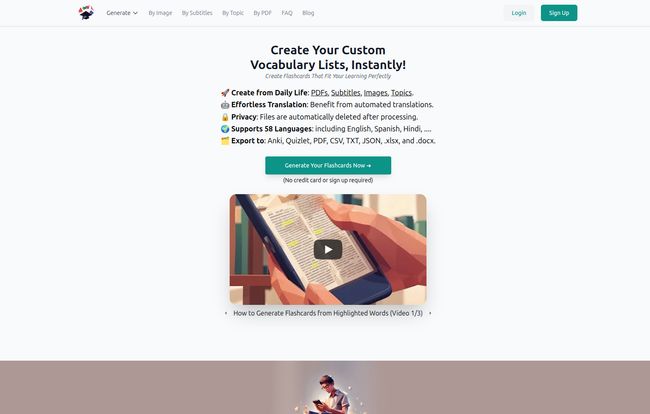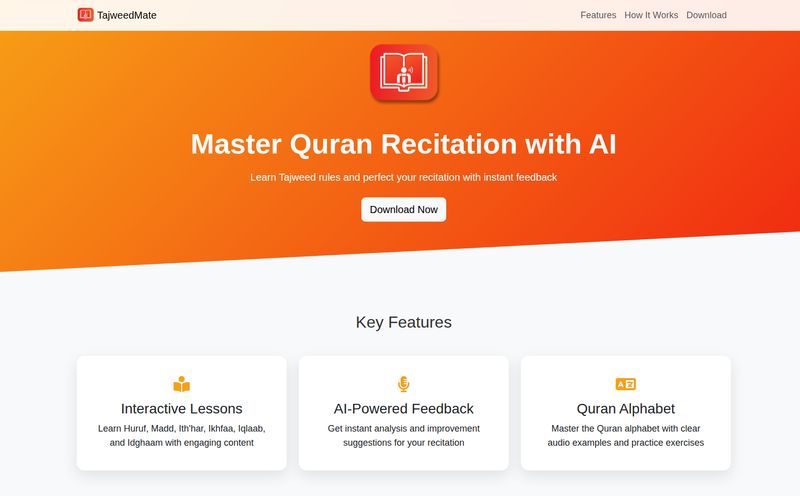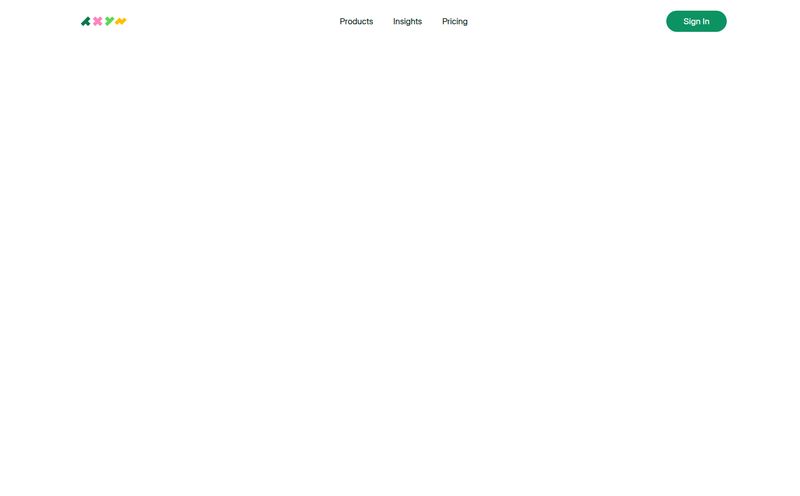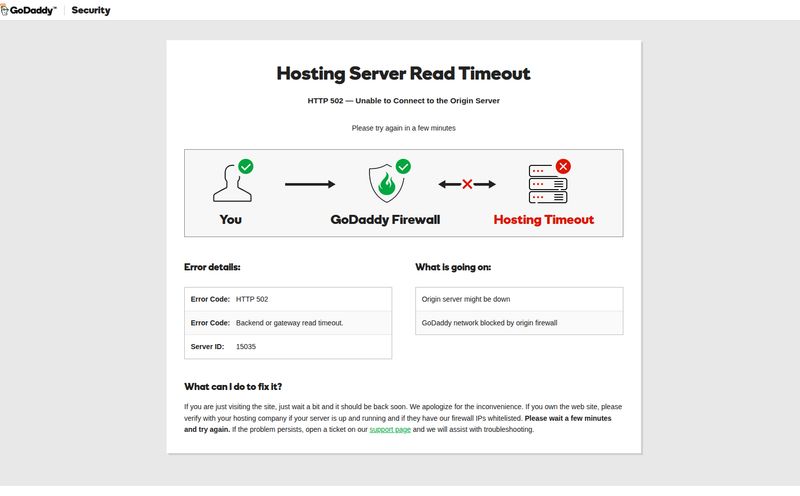Alright, let’s have a little heart-to-heart. If you’ve spent any time seriously trying to learn a language, you know the drill. You encounter a new word. You write it down. You look up the translation. You write that down. You transfer it to a flashcard. Repeat. And repeat. And… yeah, you get it. It’s a grind. For years, I’ve relied on a clunky system of screenshots, Google Keep notes, and a whole lot of manual data entry into Anki.
It’s tedious. It’s time-consuming. And honestly, it’s one of the biggest hurdles that makes me just want to… not. So when I stumbled across a tool called Vocdeck.ai, my inner SEO-slash-language-nerd sat up a little straighter. A tool that promises to create custom vocabulary flashcards from practically anything? Instantly? For free? Okay, you have my attention.

Visit Personalized Vocab Flashcards
So, What Exactly is Vocdeck.ai?
Think of it like a magical content converter for your brain. You feed it a source—a PDF from a class, a screenshot of subtitles from that K-drama you’re obsessed with, or even just a general topic—and it spits out a ready-to-use vocabulary list, complete with translations. It's designed to slice through the busywork of flashcard creation, letting you focus on the actual, you know, learning part.
I’ve seen a million and one language apps. Most are either too gamified to be useful or too academic to be fun. Vocdeck seems to hit a sweet spot I didn’t even realize was missing. It’s not trying to be your teacher; it’s trying to be your super-efficient assistant.
The Many Ways to Build Your Decks
This is where Vocdeck really starts to show off. The flexibility of its input methods is genuinely impressive and covers pretty much every scenario I could think of for modern language learning.
From PDF Documents
For the students and professionals out there, this one’s a big deal. Got a 30-page research paper in German or a business report in Spanish? Just upload the PDF. Vocdeck scans the document, extracts the vocabulary, and builds a deck. You can even tell it to focus on words with a certain frequency, which is brilliant for filtering out common words like ‘the’ and ‘a’ to focus on the juicy, topic-specific stuff.
From Your Favorite Shows (via Subtitles)
This is the one that made me giddy. I’ve always said that one of the best ways to learn is through immersion, and for most of us, that means media. I took a screenshot of some Japanese subtitles, uploaded it, and bam. It detected the text, and I had a list of words ready for translation. It turns a passive activity like watching a show into an active learning session without the constant pause-and-lookup dance. Huge win.
From Images and Screenshots
Similar to the subtitle feature, but broader. See a sign on the street? A menu at a restaurant? An infographic online? Just snap a picture. The tool lets you generate flashcards from highlighted words in an image. I tried this with a recipe I found online and it worked surprisingly well. It’s a fantastic tool for capturing vocabulary in the wild.
From Any Topic You Can Imagine
This feature feels a bit like magic. You just type a topic—say, “space exploration” or “baking vocabulary”—select your target language, and it generates a list of relevant terms. I tested it with “Beginner Sailing Terms” in French, and it gave me a solid starting list. It’s perfect for when you want to build foundational vocabulary around a new hobby or interest.
My Favorite Features (And a Few Honest Quirks)
No tool is perfect, right? But some come pretty close to what I need. Vocdeck has a few standout features that make it more than just a novelty.
The absolute best part, for me, is the export functionality. You can export your generated decks to Anki, Quizlet, Memrise, CSV, PDF, and a bunch of other formats. This is massive. It means you’re not locked into their platform. You can use their powerful creation tools and then pull your decks right back into your existing Spaced Repetition System (SRS) workflow. It respects the fact that serious learners already have a system. It's not trying to replace Anki; it’s trying to make your Anki better.
But, let’s be real. It’s not flawless. The biggest thing to watch out for is that the translations are automated. AI has come a long way, but it still messes up context and nuance. The site itself advises you to verify the translations, and I’ll second that. Think of it as a first draft. It gets you 90% of the way there, but you’ll want to give it a quick once-over, especially for more complex terms.
A couple other things I noticed: there’s currently no way to import an existing list you might have, which would be a nice addition. Also, there’s no dedicated mobile app. The site works fine on a mobile browser, but a native app would make the on-the-go image capture even smoother. Minor gripes, really, especially for a free tool.
Let's Talk About the Price Tag
This is the easy part. It’s free. I kept looking for the catch, the “Pricing” link, the “Upgrade for More” button. I even clicked a broken link on their site that gave me a 404 error, thinking maybe the pricing page was just hidden. Nope. You can walk right up to Vocdeck.ai and start generating flashcards without an account or a credit card. It’s refreshing, honestly.
Now, the site does mention that creating an account (also free) lets you save your decks and history. So, if you plan on using it more than once, it’s probably a good idea to sign up. But the fact that they don’t gatekeep the core functionality is a huge plus in my book.
Who Is This Tool Actually For?
I can see a few groups of people falling in love with this.
- The Dedicated Language Learner: Anyone who already uses Anki or Quizlet and just wants a faster way to populate their decks with real-world vocabulary.
- The University Student: Someone who has to digest dense academic texts in a foreign language and needs to quickly build a topic-specific glossary.
- The Passionate Hobbyist: The person learning a language through movies, books, or blogs who wants to easily capture new words as they go.
If you're looking for a super-polished, all-in-one language course like Duolingo or Babbel, this isn’t it. Vocdeck is a utility. A powerful, sharp, and incredibly useful utility for a specific, and often painful, part of the learning process.
My Final Verdict on Vocdeck.ai
I’m genuinely impressed. Vocdeck.ai solves a real problem that I've personally struggled with for years. It’s not perfect, but it’s powerful, flexible, and free. It bridges the gap between discovering new vocabulary and actually getting it into a system where you can study it effectively. It takes the most boring part of language learning and automates it.
Will it replace my entire learning system? No. But will it become an indispensable part of my toolkit for creating new study materials? Absolutely. Give it a try. Since it costs nothing but a few minutes of your time, you really have nothing to lose.
Frequently Asked Questions
- Is Vocdeck.ai really free to use?
- Yes, the core features for generating flashcards are completely free and don't require an account. You can create a free account if you want to save your work on the platform.
- What languages does Vocdeck support?
- According to their site, it supports 58 languages for both the source material and the translation, covering most of the major languages people are studying.
- How accurate are the translations?
- They are AI-generated, so while they are often very good, they aren't perfect. It's always a good practice to double-check them, especially for words with multiple meanings or specific contexts. The platform itself recommends this.
- Can I use the flashcards I make in other apps?
- Yes! This is one of it's best features. You can export your vocabulary lists to formats compatible with popular apps like Anki and Quizlet, as well as standard files like CSV and PDF.
- Is there a mobile app for Vocdeck.ai?
- Currently, there isn't a dedicated mobile app. However, the website is mobile-friendly and can be used from your phone's browser for generating flashcards on the go.
Reference and Sources
- Vocdeck.ai Official Website
- Anki - Powerful, intelligent flashcards
- Quizlet - Learning tools and flashcards



